Amp or Guitar: What Makes the Sound?
How do you get the perfect sound?
Amp or guitar: We are all searching for the perfect, ultimate sound. But the influences that affect our signal are almost endless: the power supply interferes. The cables cross-section is too small. The effects pedals have insufficient true bypass. And then there is also the big question of what influences the sound more and the most important thing: What makes the sound the amp or the guitar?
Amp or Guitar – What we Think
The Amplifier – The True Voice of Sound?
The amplifier adds our playing its voice, so it’s clear that it has the greater influence. Or am I wrong? Without an amp, even the best electric guitar would produce little more than a quiet whispering noise, and its potential would remain largely untapped. OK, it would still look good… But technically speaking, the amp takes the electric signal from the guitar and shapes it into the sound we love and that has defined a number of genres.
The importance of the amp lies in its ability to significantly influence the sound. Different types of amplifiers – tube, transistor or digital modelling – offer a wide range of tonal characteristics. Tube amps are known for their warm, dynamic sound and natural distortion at higher volumes. Transistor amps offer clarity and precision, while modelling amps can digitally reproduce the sounds of various classic amps, creating an almost infinite range of tones and styles.
Settings such as gain, equalisation and numerous built-in effects allow you to customise and shape the sound. The same chord played through different amps can sound completely different – from smooth and clean to aggressive and distorted.
From a neutral point of view, the amplifier is crucial to the final sound of an electric guitar, and we could end the discussion at this point. Even a great guitar can sound flat and uninspired when played through an inferior amp. Conversely, a high quality amp can make even a simple entry-level guitar sound impressive.
But who wants to be objective about things like music? To a large extent, looking at an amp or a guitar is not objective. Subjectivity is our business.
The Guitar – The Centrepiece or Just a Piece of Wood?
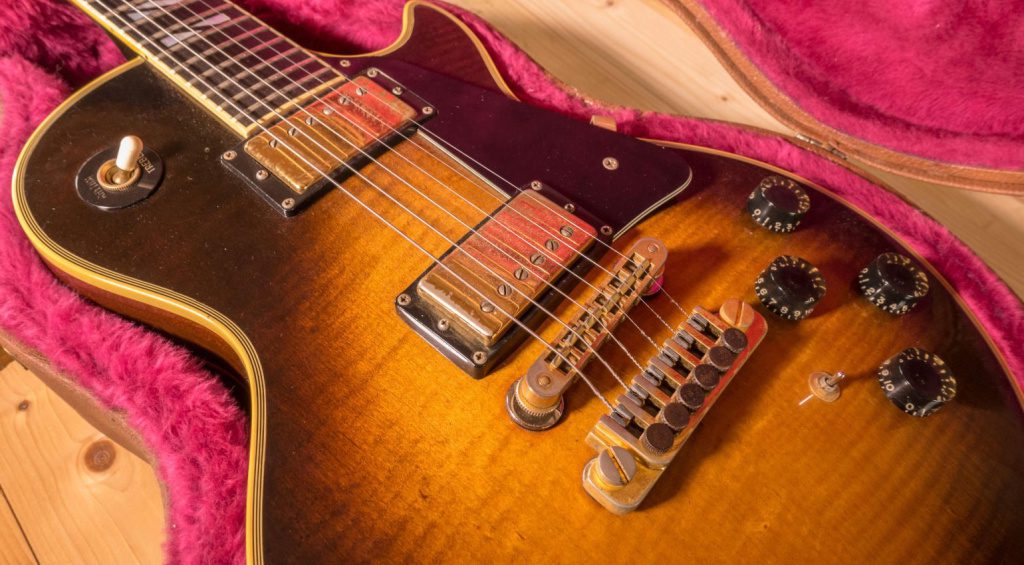
A guitar is much more than a piece of wood with strings. It is the heart of our musical expression, the direct link between our emotions, our fingers and the sound we create. And every guitar has its own personality, shaped by its construction, the woods used and the pickups fitted.
As we have previously reported, the choice of wood influences not only the weight and aesthetics of an instrument, but also its timbre and character. Mahogany adds warmth and depth, while ash brings clarity and brilliance. The construction – whether solid, semi-hollow or even fully hollow – determines how the guitar vibrates and resonates. The pickups then act as the heart of the electronics, capturing the vibrations of the strings and converting them into electrical signals.
The Guitar as a Link to Music
But beyond the technical aspects, it is the psychological connection to the guitar that makes it so indispensable: we give our guitars names, personalise them with all sorts of good and not-so-good artwork. We buy special straps and spend countless hours taking care of them. Every dent and scratch tells a story, reminds us of past gigs or intense rehearsals – some people love the ‘patina’, some people hate it. And some people even artificially age their instruments to achieve a used look.
This emotional attachment also influences our playing. When I play a guitar that I love, I feel inspired and motivated to create new riffs or master a solo or two. My favourite Paula feels perfect in my hands and I know all its scratches and quirks like the back of my hand. It responds to the slightest nuance and becomes an extension of myself. Psychologically, this trust in our instrument gives us confidence and promotes our creativity.
In the debate about the influence of amps or guitars on sound, the guitar is clearly in the foreground for me. It is not just a tool, but an expression of our identity as musicians. While an amp amplifies and colours the sound, it is the guitar that shapes our individual sound and allows us to bring our musical vision to life.
The Interplay – The Symbiosis of Guitar AND Amp
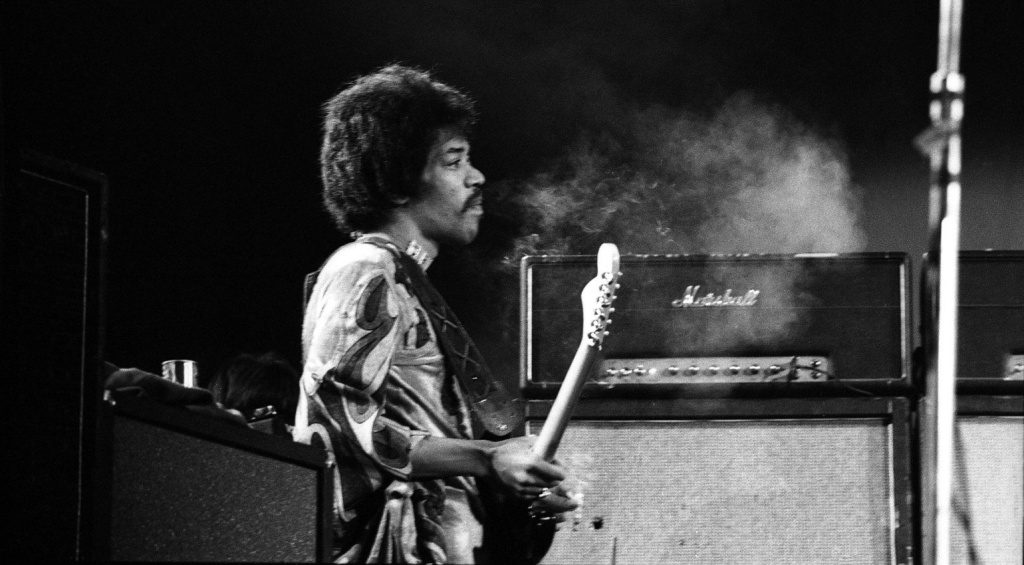
Of course, it shouldn’t be called an amp or a guitar. With the above in mind, it is clear that the real magic often comes from the interaction of the two components. Certain combinations of guitars and amps have not only created unique sounds, but have also shaped and defined entire musical styles. Reason enough to take a closer look. Here are the evergreens:
Amp or Guitar? Both. Classic Combinations That Have Defined Styles
Fender Stratocaster + Marshall amp
- Guitarist: Jimi Hendrix
- Style: Psychedelic rock, blues rock
- Description: The Fender Stratocaster with its clear single-coil pickups delivers a brilliant sound, complemented by the warm and powerful tone of the Marshall amplifier. This combination allowed Hendrix to create his revolutionary sound effects and feedback experiments.

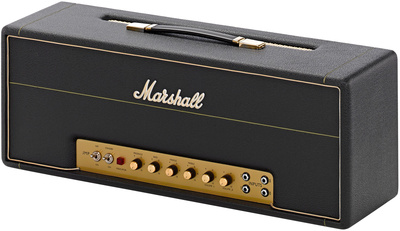


Gibson Les Paul + Marshall Plexi
- Guitarist: Jimmy Page (Led Zeppelin)
- Style: Hard rock, blues rock
- Description: The warm, full timbre of the Les Paul blends perfectly with the rich overdrive of the Marshall Plexi. This setup was crucial to the heavy yet nuanced sound of Led Zeppelin. Wall of sound, anyone?



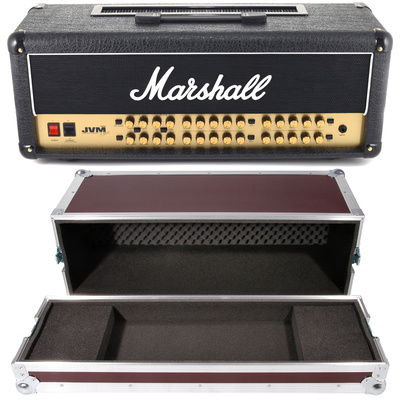
Fender Telecaster + Fender Twin Reverb
- Guitarist: Keith Richards (The Rolling Stones)
- Style: Rock ‘n’ roll, blues
- Description: The Telecaster offers a crisp, twangy tone that is enhanced by the clear, sparkling sound of the Twin Reverb. This combination is ideal for rhythm-oriented playing and has shaped the classic Stones sound. And I’ve already mentioned that I love Keith Richard’s guitars…



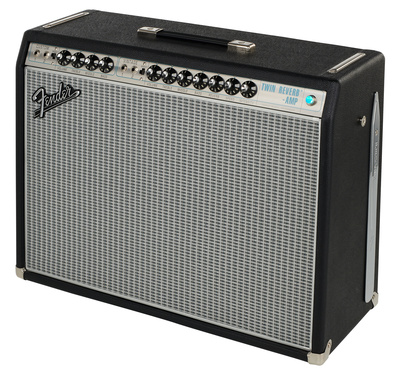
Gibson SG + Marshall JTM Full Stack
- Guitarist: Angus Young (AC/DC)
- Style: Hard rock
- Description: Known for its punchy tone and lightweight construction, the SG combined with the aggressive and loud Marshall stack to produce the raw and energetic sound that defined AC/DC.



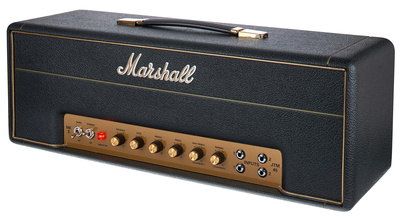
Rickenbacker 360/12 + Vox AC30
- Band: The Beatles, The Byrds
- Style: Jangle pop, Rock
- Description: The 12-string Rickenbacker produces a shimmering, chorale-like sound that is amplified by the warm and harmonically rich Vox AC30. This combination was seminal to the sound of the British Invasion and folk rock.

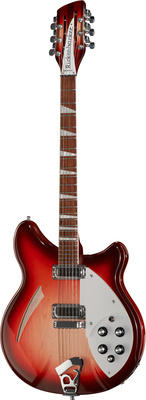

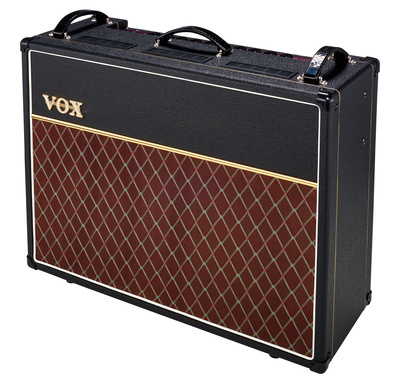
PRS Custom 24 + Mesa/Boogie Mark Series
- Guitarist: Carlos Santana
- Style: Latin rock, fusion
- Description: The versatility and sustain of the PRS, coupled with the dense and full overdrive of the Mesa/Boogie, create Santana’s signature singing lead sound. Although today we often associate Mesa/Boogie amps with harder genres.

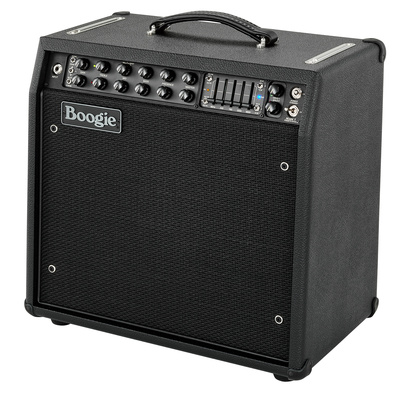

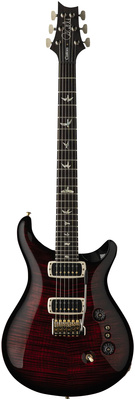
These examples, although well known, illustrate how important the right pairing of guitar and amp is to the final sound. Each combination brings its own nuances and can make the difference between a good sound and an iconic sound.
Experimenting with different setups allows guitarists to find their individual style and maybe even set a new trend. While some combinations are considered (too) classic, unconventional pairings can lead to surprising and innovative sonic experiences… I’m looking forward to hearing your setups in the comments!
Amp or Guitar? My Conclusion
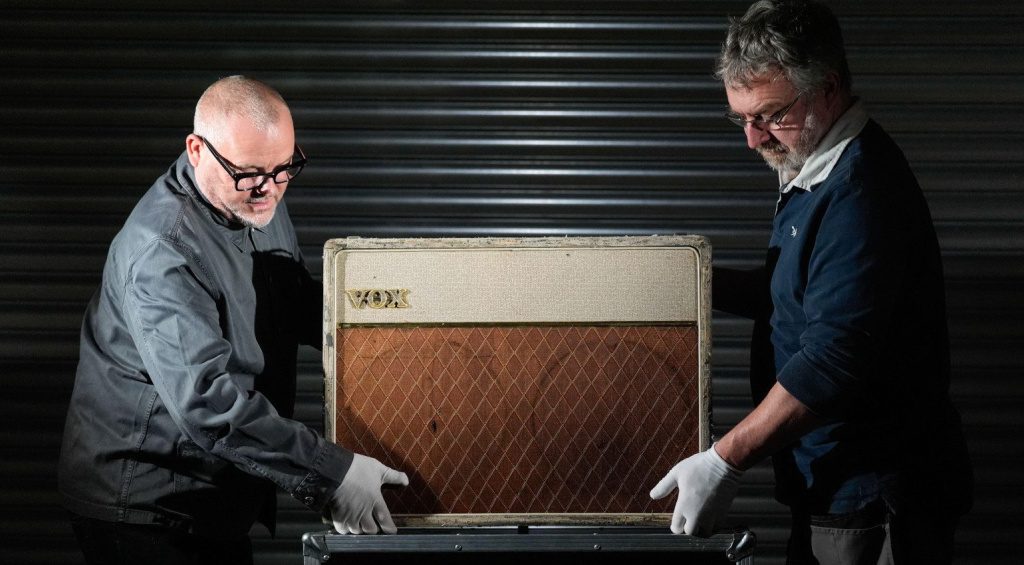
With all this in mind, what is more important – amp or guitar? I firmly believe that the amp is the more important part of the tone. It is the heart of the instrument that shapes, colours and projects the tone. A great amp can bring out the full potential of a guitar, and can make even an average guitar sound impressive. Objectively speaking, the amp is the key to the variety and dynamics that we as guitarists strive for.
But when we talk about music, the verdict is different. The psychological and emotional bond I form with a guitar influences my playing far more than an amplifier ever could. So, in the end, my guitar influences my playing (and therefore my sound) considerably. It’s a classic standoff.
There will probably never be a final outcome – and that’s a good thing. Ultimately, one or the other won’t work without the other. It’s a good thing there’s plenty of both…
This article is based on a post of Jan Rotring for GEARNEWS.de
Disclaimer: This article contains affiliate links, which help us pay for this site. Don’t worry: the price for you will always be the same! If you buy something through one of these links, we’ll get a small commission. Thank you for your support!
2 responses to “Amp or Guitar: What Makes the Sound?”
 4,5 / 5,0 |
4,5 / 5,0 | 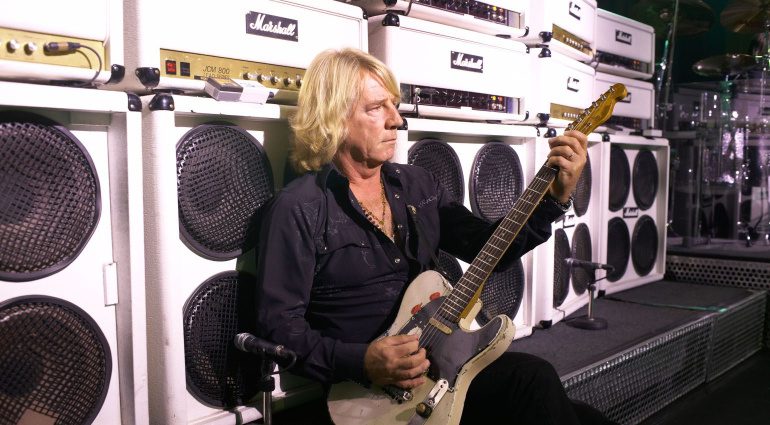


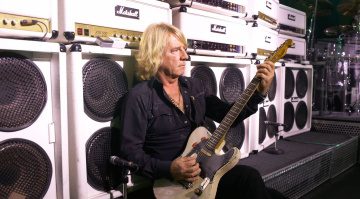

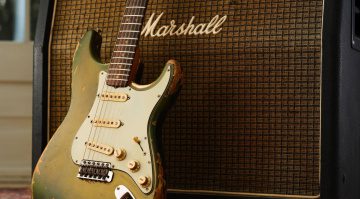
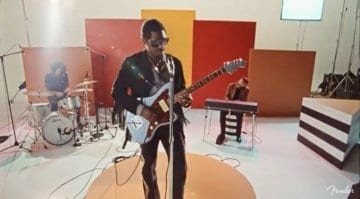
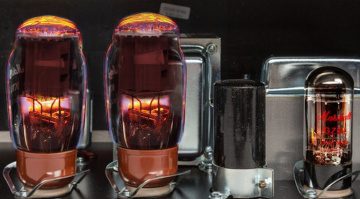


the guitar is just a tool like a hammer as long as it’s comfortable to play it’ll inspire and help practice, an amplifier can be anything you can easily amplify your sound. what makes the biggest difference and the biggest effect isn’t the guitar or amp , it’s honestly the last thing in the chain that projects that sound, the speaker. no speaker,no sound, so it doesn’t matter what guitar you have or amp if you have nothing to project it through.
the only time “tone wood” matter’s is in an acoustic or semi hollow, pickups don’t matter when you have EQ on your amp or an EQ pedal. most guitar amps are built on similar circuits and can be made to sound the same, this is all just logical, but because we are a visual species and society has made us all want the newer shiny thing or made us arrogant we look at things different. close your eyes choose a guitar with your hands and a sound with a speaker.
the easy answer is cab speaker and mic placement 🙂